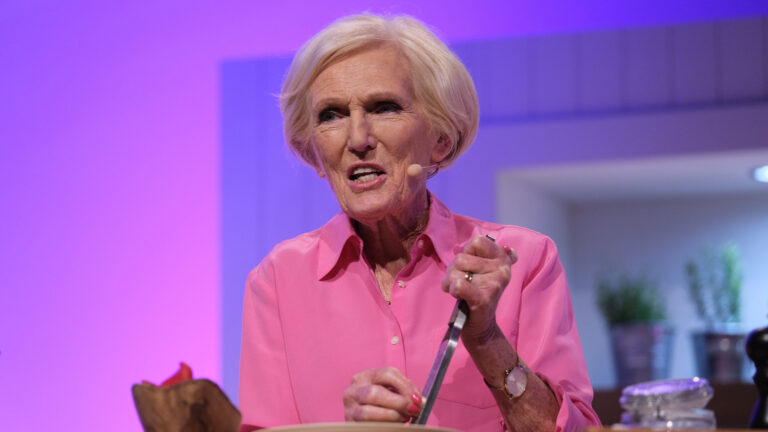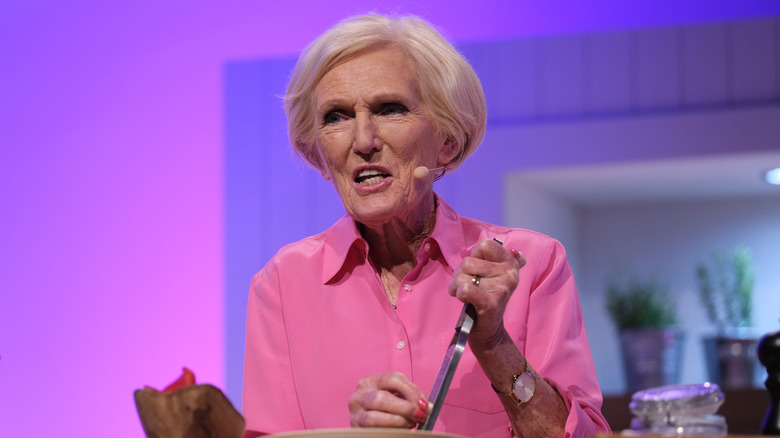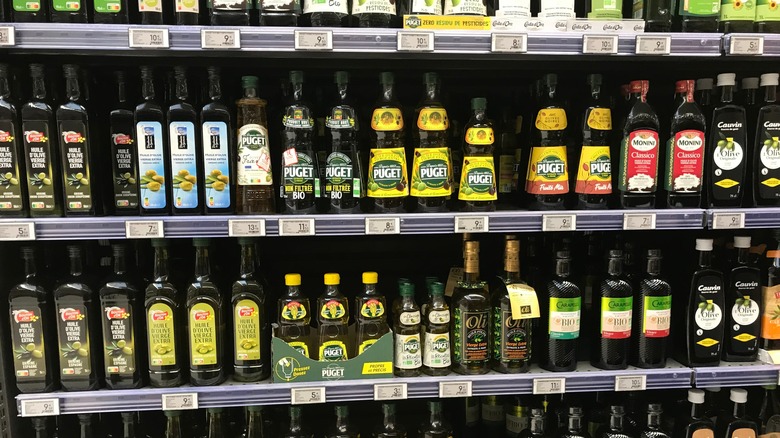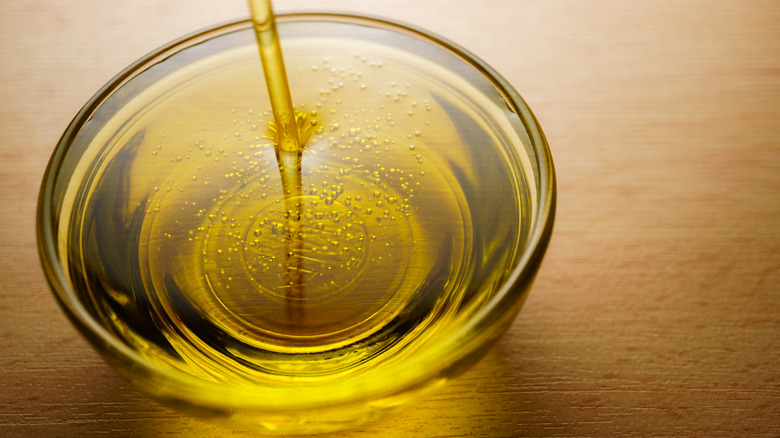The world of cooking oils is vast. At the grocery store, it's easy to get lost in the rainbow of bottles, containers and sprays that seem to be made from all kinds of nuts, vegetables and trendy foods. As some types become fashionable and others are demonised, if you listen to social media, you'll probably be changing your oil every time you go shopping. But Mary Berry dismisses all that nonsense, telling us she only keeps three types of oil in her kitchen:
advertisement
As it turns out, this isn't her first time doing this: The popular judge on The Great British Bake Off is the author of more than 70 cookbooks (yes, 70!), a food-related writing and TV regular since the 1960s, and she knows her way around the grocery store.
Berry says a good, high-quality bottle of olive oil, a more economical olive oil, and sunflower oil are her go-tos, and those are the only three she keeps in her pantry at all times. She says they're reliable and don't spoil as quickly as trendier oils like nut oils. They're reusable options, and with these three you can prepare any dish without taking up too much cupboard space.
advertisement
Keep high-quality, affordable olive oil on hand
Mary Berry is adamant about keeping her oil choices to a minimum. She avoids buying niche oils because she knows they're bottles she'll only use once or twice. Instead, she sticks to familiar, favorite oils that she knows she'll use again and again in a variety of recipes, baked goods, sauces, and dressings. Two types of olive oil are her pick:
advertisement
Why two kinds? I suspect Berry views olive oil in a similar way to other culinary experts, like Martha Stewart. She preaches similar advice to save the cost of high-end olive oil by saving it for recipes where the flavor shines and using a cheaper, more convenient bottle for other occasions. For example, if you make a homemade salad dressing with many other ingredients, like vinegar, lemon juice, garlic, and spices, the flavor of the olive oil itself won't stand out as much in the symphony of other ingredients. Use the cheaper bottle here and save the good one for drizzling on crusty bread, tossing with noodles for a special pasta dinner, or any other occasion where the rich olive oil flavor will take center stage.
advertisement
Berry similarly knows it's worth spending the money on high-quality olive oil — the flavor is much more pronounced and vibrant, but it will certainly cost many dollars more than a cheaper bottle — and there's a time and place for both in cooking.
Mary Berry says sunflower oil is a must
The third and final oil that Mary Berry keeps in her closet is sunflower oil. This oil may not be as familiar or mainstream as canola or vegetable oil, but Berry calls it a must-have, likely due to its versatility and range of uses. As its name suggests, sunflower oil is made from the seeds of the sunflower plant and has garnered attention for its potential health benefits (the oil is high in unsaturated fats), but it's its functionality that Mary Berry particularly loves.
advertisement
Unlike olive oil, sunflower oil is great for high-temperature cooking, no matter which type you use. Sunflower oil has a high smoke point, making it safe to use for all types of cooking, including grilling, sautéing, and browning. There is one important caveat, though: some studies have found that repeatedly heating sunflower oil, such as for deep-frying, can release compounds that are unhealthy. It's safe to cook with it at high temperatures, but proceed with caution when repeatedly heating it.
Flavor-wise, sunflower oil, like its close relative safflower oil, has a very mild taste that makes it a great candidate for use in a wide range of dishes without being overpowering with its own flavor. Whether you're cooking, frying, baking, or creating flavorful dips, these trusty workhorses have you covered.
advertisement





